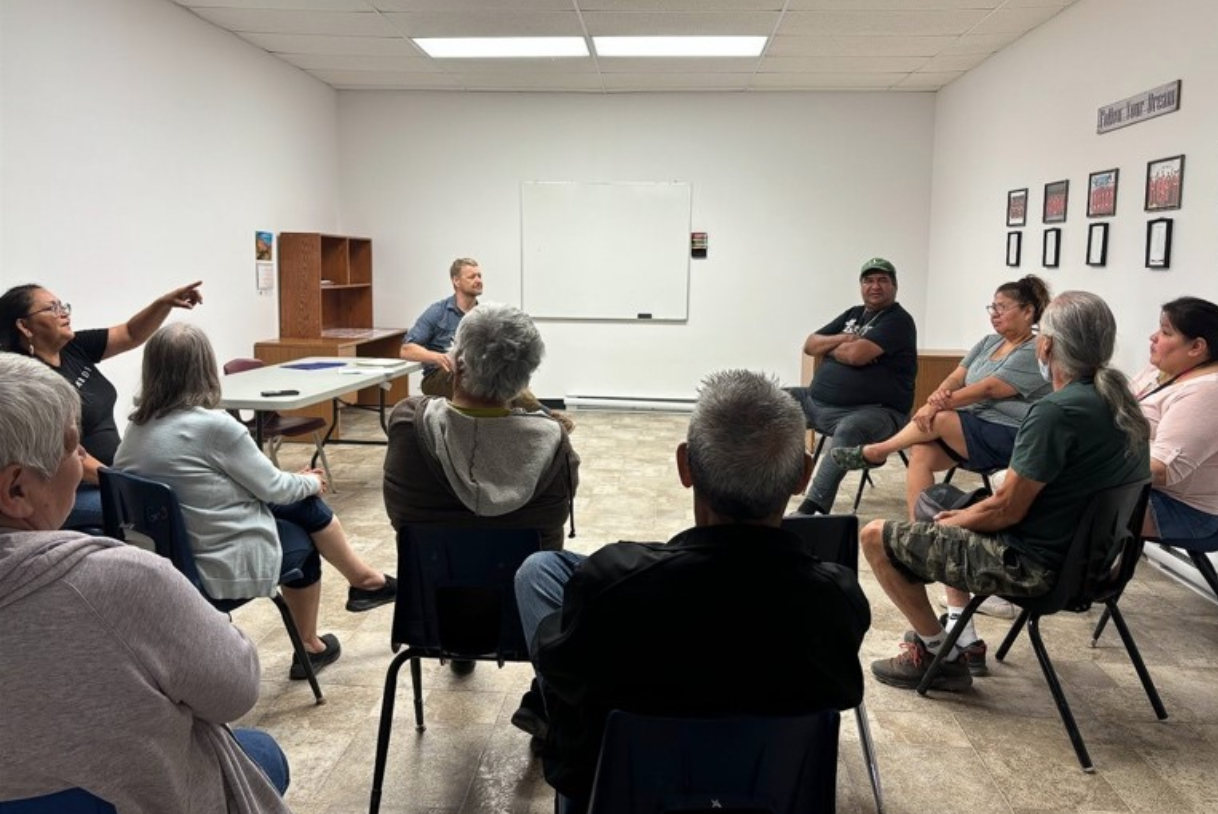As part of the Net-Zero Communities Accelerator (NCA) program, in partnership with QUEST Canada, CIER staff visited Sandy Bay Ojibway First Nation (SBOFN, or Sandy Bay for short) to run Energy Sharing Circles. On July 17 and 18, 2024, sessions were held with the Chief, council, and community members to understand local energy challenges and gather input on long-term energy priorities and goals.
The NCA program, led by QUEST and in partnership with CIER and three other organizations, aims to equip more than 15 communities across the prairies with the knowledge and tools required to develop Community Energy and Emissions Plans (CEEPs). Sandy Bay qualified as one of two communities for CIER to work with, notably as CIER has been involved with Sandy Bay on a number of projects to help advance their environmental initiatives over the past few years.
The Energy Sharing Circles marked the project’s first engagement event. CIER staff introduced the NCA program, and provided an overview of energy basics. Around 40 community members, including Elders, youth, and women attended the event. An open Q&A session was also held to encourage participants to ask questions and voice concerns about energy opportunities in Sandy Bay. Dedicated interviews with Elders and youth further served to capture diverse perspectives.
A community lunch was also organized for event attendees, providing an opportunity for more casual discussions and community bonding. After the event concluded, door prizes were awarded to participants who signed in and submitted a completed survey, emphasizing appreciation for their involvement.
Overall, the gathering fostered a strong sense of camaraderie and allowed participants to further share thoughts and experiences in a relaxed setting.The insights gathered from these sharing circles and surveys, combined with the discussions during the meetings, will play a crucial role in shaping future energy initiatives and informing the development of a CEEP that aligns with the community’s needs and priorities.

Resource Request
